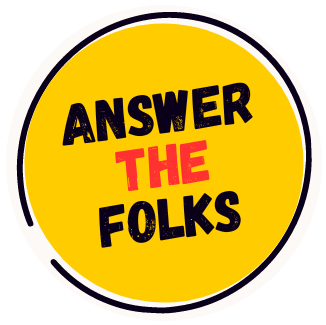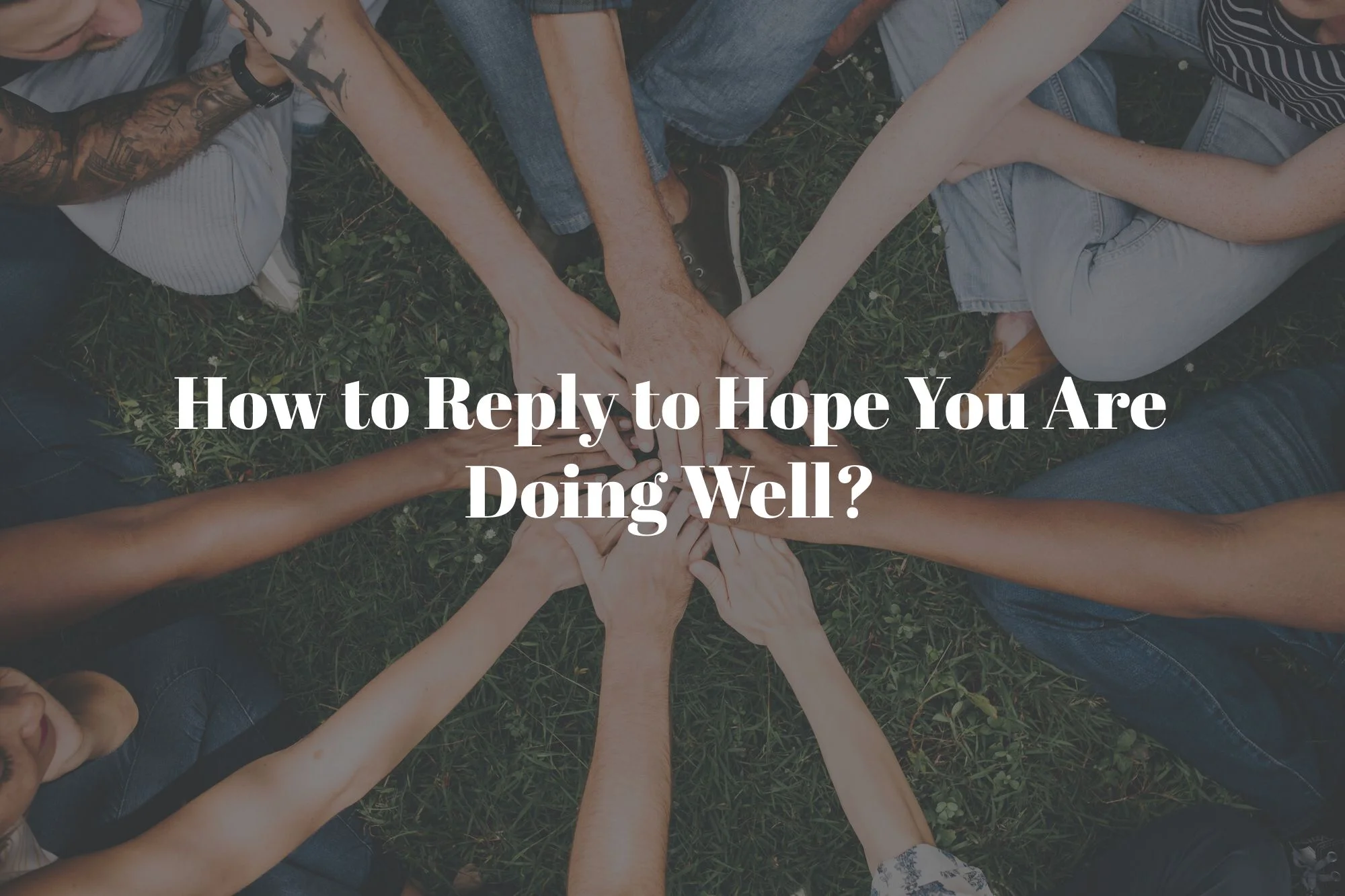Finding the Right Words: Effective Ways to Respond to “I Hope You’re Doing Well”
Receiving a message from someone asking “I hope you’re doing well” can feel like a routine greeting. However, your response is an opportunity for meaningful connection. In this post, we’ll explore why effective communication matters in these brief exchanges and provide suggestions for thoughtful, well-rounded replies.
Quick Hits:
Here are some quick replies to Hope you are doing well:
- Thank you, I’m doing alright. Hoping all is well with you too!
- I’m hanging in there – hope your day is going smoothly so far.
- It’s been a busy week but pushing through. Appreciate you checking in!
- Managing as best I can. Wishing you all the best in your endeavors as well.
- Things are going smoothly on my end. Thanks for thinking of me – hope your week is off to a good start.
- Getting by one day at a time but staying upbeat. Thank you, and I hope all is well with you.
- Busy as ever but keeping afloat! Thank you for reaching out – wishing you all the best.
- Adjusting day by day but maintaining optimism. Thanks for checking in, I appreciate the thought.
- Battling through the ups and downs. Wishing you peace and blessings – take care!
- Managing moment by moment but focused on forward progress. Thank you for your concern – I hope your day is well!
It’s About More Than Just Returning the Gesture
When someone expresses hope that you’re doing well, they intend to acknowledge you in a caring way. However, simply responding with “I’m doing well, thanks” or “You too” may not fully convey your appreciation for the sentiment. As communicators, we have a chance to take the interaction a step further through our words.
A one-line automated reply risks coming across as dismissive or impersonal. The person reached out to you hoping for a real connection, even if just for a moment. Your response is a chance to recognize their thoughtfulness and reciprocate the goodwill. Showing you’ve considered their message beyond a cursory greeting strengthens the relationship in a small yet meaningful way.
Personal Anecdotes Can Add Depth
To move beyond a surface-level response, sharing a brief personal anecdote can help deepen the exchange. For example, you might say something like:
“Things have been busy but going well overall. I just finished a big project at work which was quite a relief. How have you been keeping these days?”
Adding some context about your life through a short story personalizes your reply. It acknowledges the question while sparking further conversation. People enjoy feeling they have an understanding of others, even in small ways. Including a small detail makes your response feel more lively and engaging compared to a stock answer.
Humor Can Lighten the Mood
A touch of humor is always appreciated when used appropriately. If you have an amusing anecdote related to how you’ve been, sharing it can put a smile on the other person’s face. For instance:
“I’m surviving, though the family chaos is in full swing with back-to-school season in full effect! The other day at the store, I turned around for two seconds, realizing my youngest had wandered halfway across the building. Never a dull moment around here – how are things on your end?”
Self-deprecating or lighthearted stories show your personality while conveying you’re doing alright in an entertaining way. Humor is a universal language that fosters goodwill and rapport when applied judiciously.
Read Also: Okie Dokie Artichokie Response
Ask Follow-Up Questions for Mutual Understanding
Another effective technique is turning the question around by sincerely asking how the other person has been as well. Showing interest in their well-being reciprocates their thoughtfulness in a meaningful give-and-take:
“Things have been going alright, just keeping busy as always. How have you been managing lately – anything new or exciting happening on your end?”
Posing an open-ended question invites them to share too, opening a two-way dialogue. Follow-up questions keep the interaction dynamic vs just an exchange of status updates. Active listening and engaging build better relationships over time through mutual understanding.
Staying Positive While Being Frank When Needed
Of course, not every day is positive, so your response needs flexibility. If you’re having a challenging time, being honest yet still uplifting keeps the tone constructive:
“It’s been a bit of an adjustment period recently but I’m keeping my head up. This too shall pass, as they say. I could use some good distraction actually – what have you been up to that’s keeping your spirits up lately?”
Even in tougher times, focusing on gratitude, hope, and solutions keeps conversations solution-oriented instead of dwelling in negativity. Asking about the other shows care for their well-being too. Striking the right balance allows being real while staying upbeat.
Keep Replies Concise Yet Meaningful
With today’s fast-paced communication norms, brevity is key. However, brevity doesn’t require being curt or superficial. A few short, meaningful sentences thoughtfully crafted can have more impact than an essay:
“It’s been an adjustment but I’m finding my footing. Thank you for thinking of me – hope all is well on your end too.”
Concise yet conveying appreciation, context, and care in the other person’s life – that’s the goal. Quality over quantity through carefully chosen words leaves both parties feeling the value of the interaction.
Finding the Appropriate Tone
The right tone is also situation-specific. With close friends or family, levity and intimacy may be fitting. But with professional colleagues or more distant connections, a polite yet personal touch maintains rapport:
“Thanks for checking in. It’s been a productive period overall and I’m hopeful for what’s ahead. I hope your week is off to a smooth start as well.”
Judge the relationship and context to select a respectful yet engaging tone. Formality isn’t required when unnecessary, but familiarity needs moderation with some. Striking the right balance fosters comfortable, meaningful conversations.
Conclusion
In closing, brief check-ins like “I hope you’re doing well” are a chance to nurture connections, even unintentionally, through our replies. Taking time to craft thoughtful yet concise responses personalizes the interaction and signals care for the other person. Whether sharing humor, asking questions, or expressing sentiments sincerely, quality communicators maximize these small exchanges to deepen rapport over time. Our words have the power to uplift – may we use them wisely in building understanding between ourselves and others.
FAQs
What if I don’t have time for an elaborate response?
Even a short yet meaningful reply shows you value their message. A few sentences acknowledge their kindness and wish them the same, and in return, do the job without fuss. Brevity need not mean superficiality.
How should I reply if I’m not doing well?
Focus on positivity wherever possible through gratitude, hope, or humor. If honesty is needed, pair challenges with optimistic perspectives. Upbeat solutions-orientation helps both parties while being real.
What if I don’t know the person very well?
Stick to a polite, genuine yet concise tone. Familiarity risks coming across as too casual until a rapport is established. A respectful response conveys care for their well-being without oversharing.
How do I reply to a work contact versus a personal one?
Professional contacts require maintaining cordial yet appropriate boundaries. Be sincere yet respectful formality. With closer personal connections, more intimacy and personality come across naturally. Adjust tone to context.
What if they seem insincere or I’m not close with this person?
Respond respectfully while prioritizing your well-being. A brief yet polite thanks acknowledge their message without obligation for deep disclosure. Balance maintaining courtesy with preserving your energy for meaningful connections.
In closing, I hope exploring options for thoughtful yet efficient replies to “I hope you’re doing well” has provided food for thought. Our words have the potential to uplift others even in small exchanges when chosen and delivered with care, understanding, and sincerity. I wish you the very best in cultivating worthwhile connections through effective communication.

